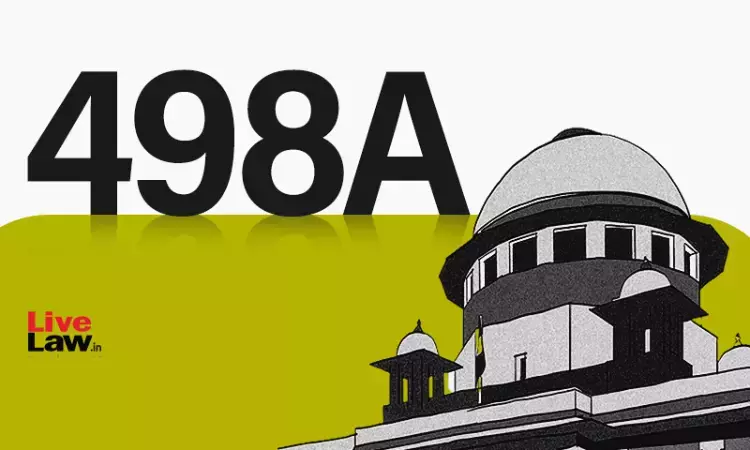Section 498A IPC- Important Supreme Court & High Court Judgments of 2023
Gyanvi Khanna
23 Dec 2023 10:10 AM IST

Next Story
23 Dec 2023 10:10 AM IST
Supreme Court Judgments- 498A Indian Penal Code, 1860 Conviction U/S 498A IPC Not Sustainable When Marriage Is Found To Be Null & Void Case Title: P Sivakumar vs State | 2023 LiveLaw (SC) 116 Coram: Justices B R Gavai and Vikram Nath The Supreme Court reiterated that the conviction under Section 498-A IPC would not be sustainable when the marriage was found to be null...
